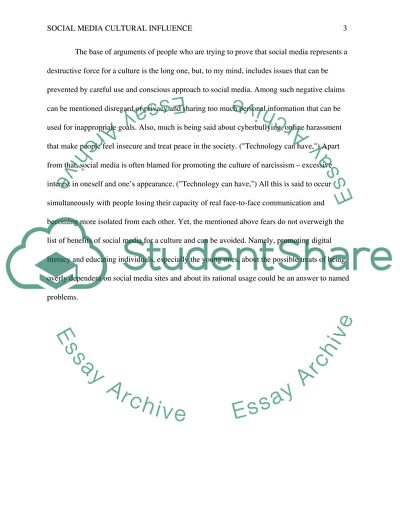Cite this document
(“Social media has negatively changed our culture Essay”, n.d.)
Retrieved from https://studentshare.org/english/1680015-social-media-has-negatively-changed-our-culture
Retrieved from https://studentshare.org/english/1680015-social-media-has-negatively-changed-our-culture
(Social Media Has Negatively Changed Our Culture Essay)
https://studentshare.org/english/1680015-social-media-has-negatively-changed-our-culture.
https://studentshare.org/english/1680015-social-media-has-negatively-changed-our-culture.
“Social Media Has Negatively Changed Our Culture Essay”, n.d. https://studentshare.org/english/1680015-social-media-has-negatively-changed-our-culture.


